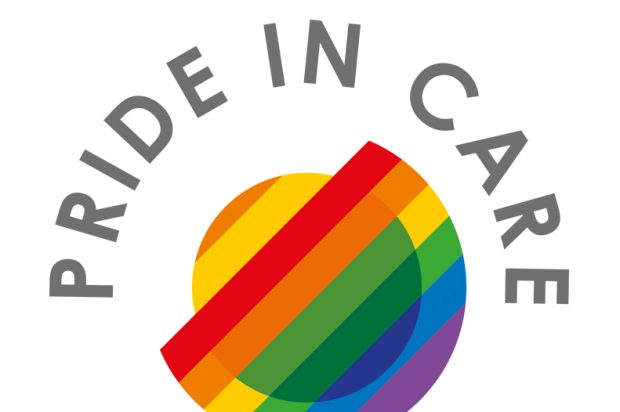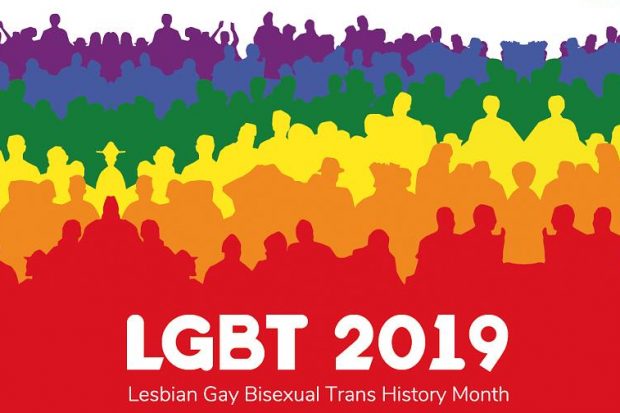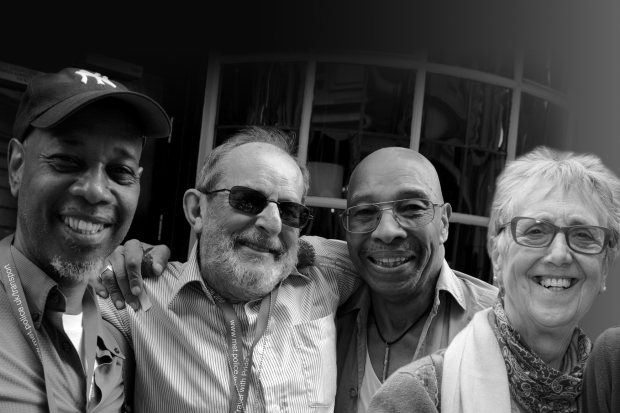I was delighted to meet with Opening Doors London's Director Alice Wallace recently. The organisation provides support and services to older Lesbian Gay Bisexual Trans (LGBT+) citizens and she kindly agreed to write a guest blog to mark LGBT History Month.
As an older lesbian myself, I am keen to make sure my own profession is at the forefront of non-judgmental engagement with LGBT+ citizens. I want us to be practice leaders in genuinely collaborative care and support. Over to Alice:
Human rights and social justice have always provided motivation and justification for social workers who are naturally engaged with advocating the needs of the most vulnerable and oppressed people.
Yet, while changes in UK equalities legislation in recent years have been transformative for younger LGBT+ people, older generations still bear the scars of institutional prejudice, discrimination and neglect that have knocked them back and kept many of them ‘in the closet’.
In practice, this means that LGBT+ people in their 70s, 80s and 90s - who are frail but healthy enough to engage with local communities - rarely do so except to stock their larders, out of a fear of harassment or violence more commonplace in the hostile climate of their formative years.
Challenges for older generations
It is often forgotten that this generation of older LGBT+ people are much more likely to be single and to live alone than their heterosexual peers.
Very few have children, which means a lack of family members to keep an eye on them with phone calls or visits to make sure their health and wellbeing needs are being met as they grow older and more frail.
Family is often absent due to estrangement caused by the misplaced shame of relatives or communities they grew up in 50 or 60 years ago. As a result, they rely heavily on the care, support and empathy of health and care professionals with whom they occasionally come into contact.
 Sadly, while the law is now clear that health and social care professionals have a duty to treat everyone fairly and equally, many social workers admit to having heard negative remarks about LGBT people, even from colleagues they have worked alongside.
Sadly, while the law is now clear that health and social care professionals have a duty to treat everyone fairly and equally, many social workers admit to having heard negative remarks about LGBT people, even from colleagues they have worked alongside.
Faith in a safe space
The older generation are particularly anxious about being treated in safe supportive spaces due to past experiences of unwanted banter, verbal abuse and physical violence. This is why the social work profession must always take a zero-tolerance approach to bullying or harassment.
This includes reporting any homophobic, bi-phobic and transphobic remarks and having the confidence to immediately challenge discriminatory attitudes and behaviours in social work colleagues, staff and clients.
This is not always easy in established teams where inappropriate banter is often used to get through a stressful and often challenging working week.
 Social workers have often demonstrated solidarity with those who are dis-advantaged. They feel a duty to challenge social conditions which contribute to social exclusion, stigmatisation or subjugation, as part of their belief in a more inclusive society.
Social workers have often demonstrated solidarity with those who are dis-advantaged. They feel a duty to challenge social conditions which contribute to social exclusion, stigmatisation or subjugation, as part of their belief in a more inclusive society.
Sometimes it is the small, personal gestures or considerations that can make the biggest difference on a day-to-day human level.
Jumping 'straight' to conclusions
If there is one suggestion Opening Doors London would offer this month it is to become more aware of the assumptions made and language used when first engaging with clients.
Working in a largely heterosexual culture, it is almost a default mechanism to assume everyone is straight unless we know different. In truth, many LGBT+ people do not ‘look’ or act differently to anyone else.
Consequently, many LGBT+ people are greeted and spoken to as if they were heterosexual. This unintentionally creates obstacles and barriers to social work assessments and ongoing relationships.
It may take a little practice, but we know from our own LGBT+ awareness workshops that everyone can adapt their vocabulary and welcoming tone of voice to be more inclusive with a little practice. This can start at initial meetings or home visits by not making any heterosexual assumptions when a new client refers to their ‘partner’.
In our experience, the older generation of LGBT+ people are far less willing to share their true identity, past history and current needs with professionals who fail to go some way to demonstrating inclusivity from that very first meeting.
Being open, inclusive and genuinely curious about a person’s individuality - and avoiding heteronormative language in the early stages - can forge empathic professional relationships that benefit both parties. Only then can the personalised care we all aspire to be really delivered.
Visit the Opening Doors London website to find out more about its work.

Leave a comment